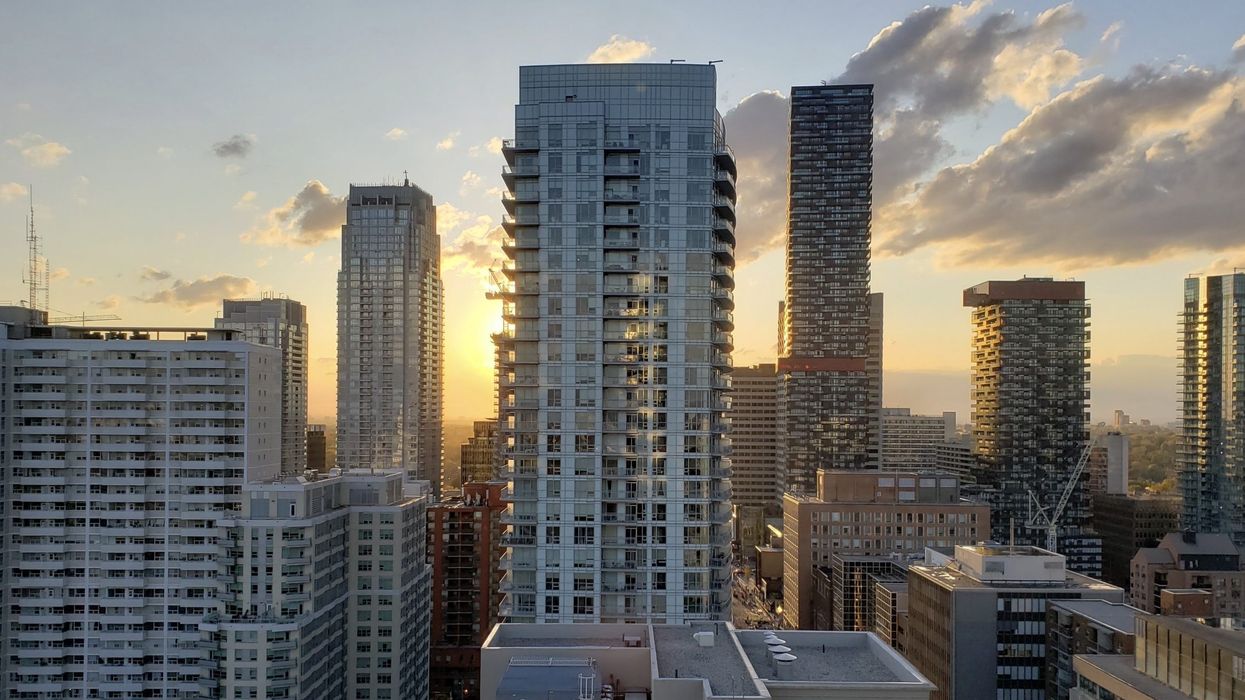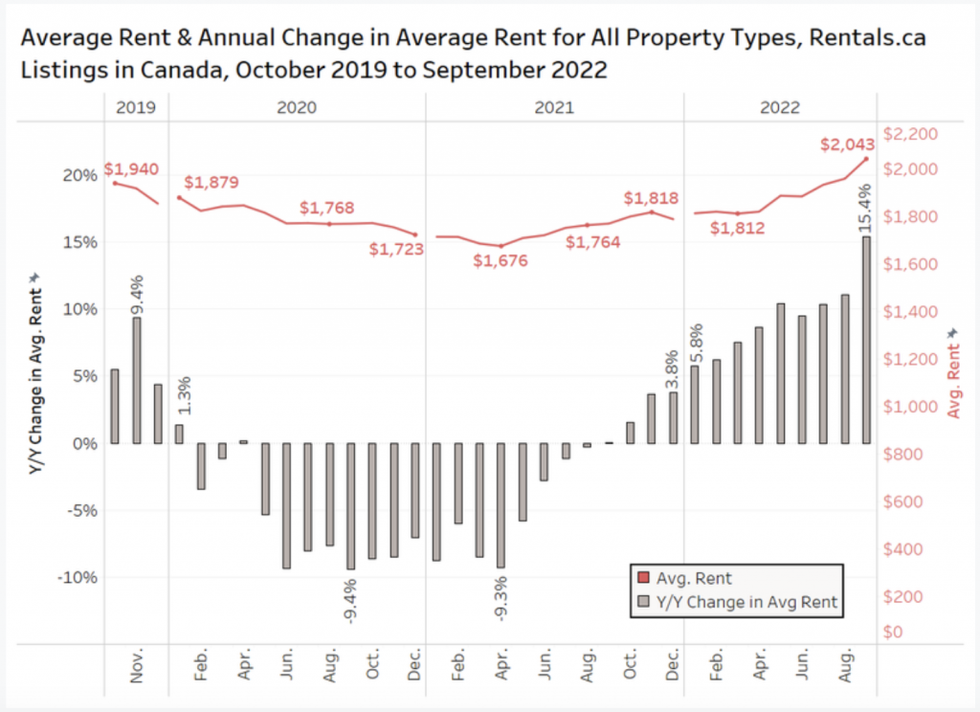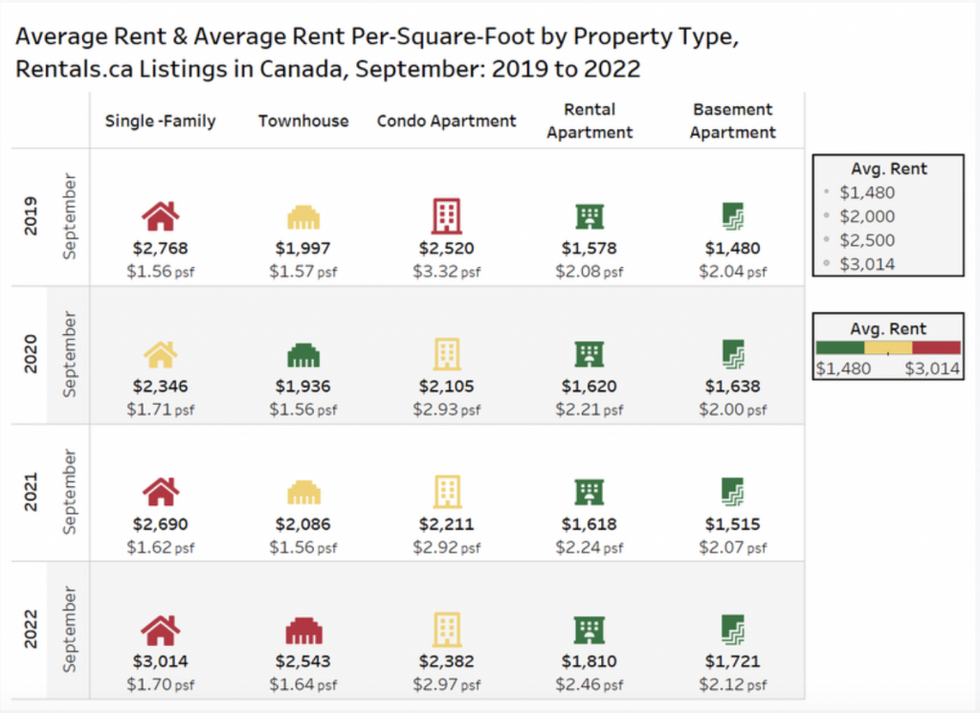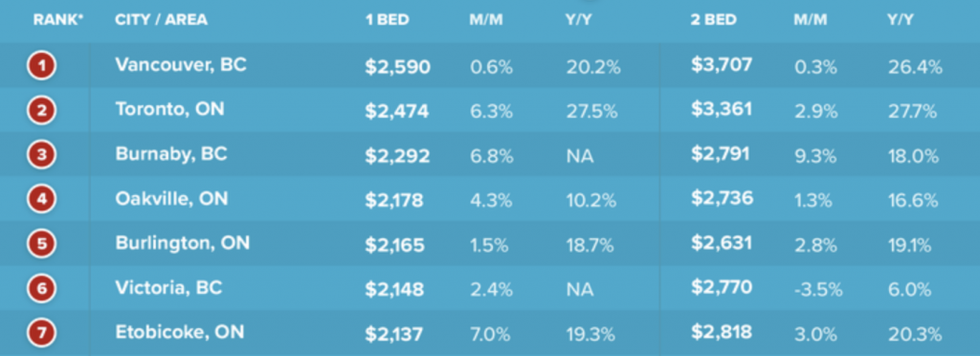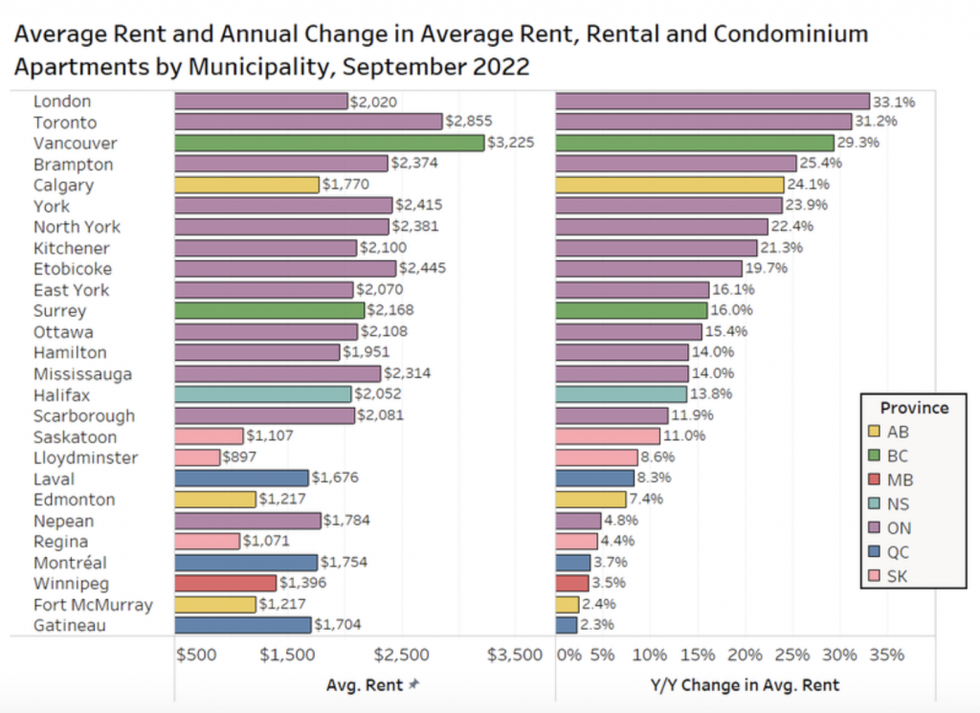
Rental rates are continuing to progress upwards in Canada, with September’s national average overtaking the 2019 peak by $100.
This is according to a new National Rent Report by Rentals.ca and Bullpen Research & Consulting, which showed that the average rent for all property types rose to $2,043 in September, representing a yearly increase of 15.4% and a monthly increase of 4.3%.
“The 4.3% increase in average asking rent from August to September is the largest monthly increase since Rentals.ca and Bullpen Consulting began publishing this report in 2018,” says Ben Myers, President of Bullpen Research & Consulting. “Rental demand has increased significantly with the continued interest rate hikes, falling ownership house prices, and changing post-pandemic preferences.”
However, the report notes that “the data is slightly skewed.”
In September, the average unit size for listings was 963 sq. ft, compared to 868 sq. ft in 2021, and larger units tend to translate to higher rents. Additionally, new purpose-built rental apartments have added higher-priced supply to the market.
But skewed or not, rental markets across the country are are hotter than they’ve ever been.
On a provincial basis, British Columbia had the highest average rent, at $2,682 in September. That price was up 31.2% annually. Nova Scotia has the second-highest provincial rental rate at $2,453 in September, rising 35.5% from the year prior, while Ontario trailed behind at $2,451, up 18.4%.
Municipally, Vancouver and Toronto snagged the top spots in the National Rent Rankings for September, in an identical fashion to the rankings from July and August.
Vancouver also had the had the highest average rental rate for condominiums and rental apartments at $3,225. Meanwhile, in terms of rent inflation, London took the top spot with 33.1% annual rent growth, followed by Toronto at 31.2%, and Vancouver at 29.3%.
For condos specifically, rents have experienced a full rebound from pandemic times, with the average rent for a condo in Vancouver reaching $3,587 in September (up nearly 54% from February 2021), and $2,988 in Toronto (up 46% from the market bottom).
Additionally, both Vancouver and Toronto saw higher demand for smaller units in centralized locations -- likely a reflection on employees returning to the office -- leaving more large units on the market in comparison to previous years. In Vancouver and Toronto, the average condo available for rent was 824 and 742 sq. ft respectively.
At this time, the national, provincial, and municipal rental markets are being influenced by interest rate hikes and dwindling demand in the home buying department -- however, there is some semblance of relief on the horizon.
The homeownership slump is prompting would-be sellers to rent out their properties instead. As such, “the total number of listings on Rentals.ca in September was the highest since Rentals.ca and Bullpen Consulting started this report in October 2018,” the report notes.
It adds that rental demand tends to falter seasonally in November through February every year.
A slight cooling of demand is already being reflected in Rental.ca’s “pageviews per listing” data, which registered a decline to "about the average level" in September.
